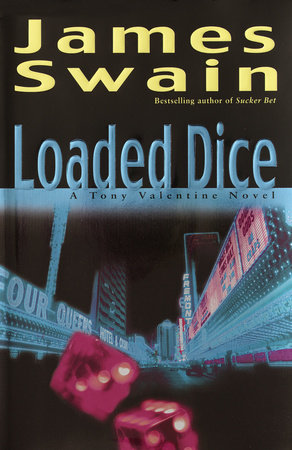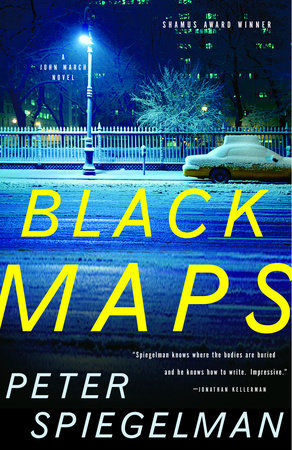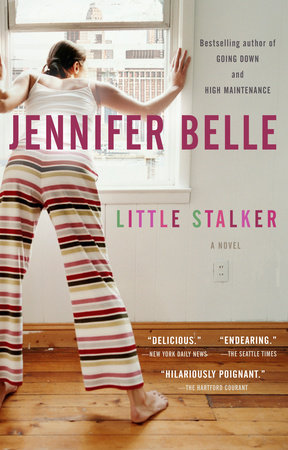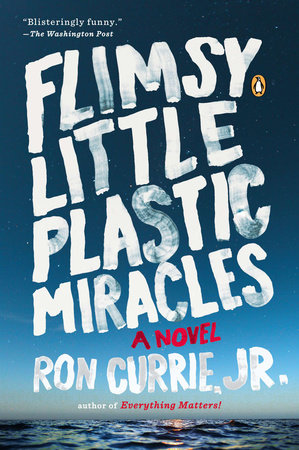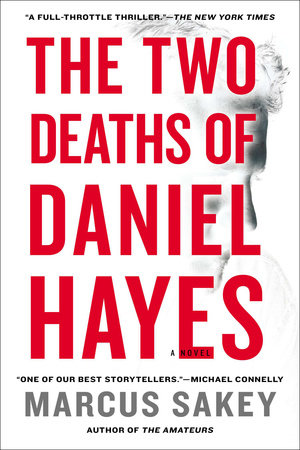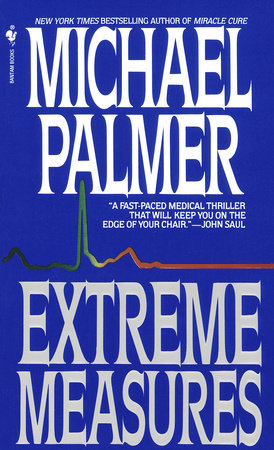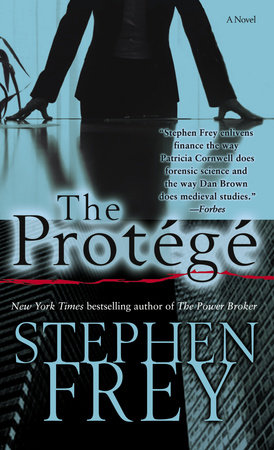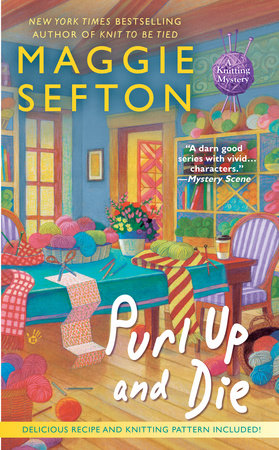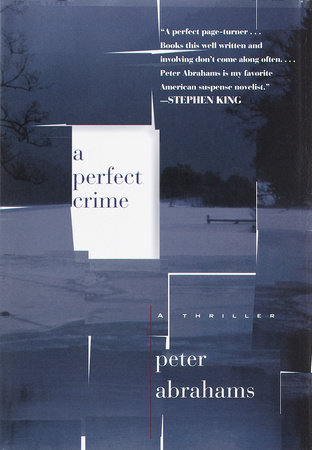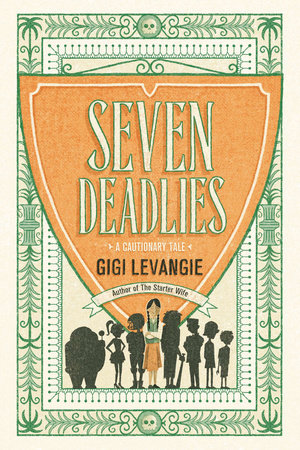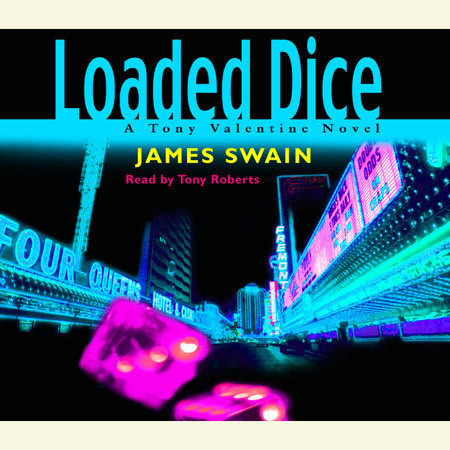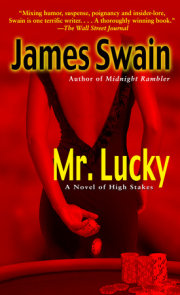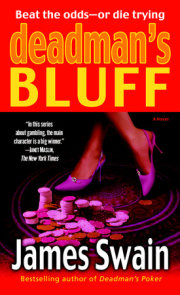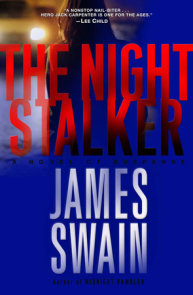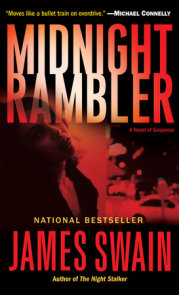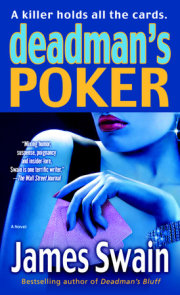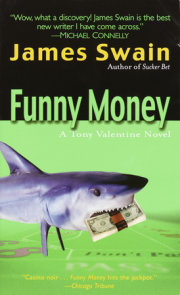Author Q&A
A Conversation with James Swain
author of Loaded Dice
Q: Your hero, Tony Valentine, lives and works in Florida, as you do. He’s an expert in the gambling world, as you are. He’s also an ex-cop, which you’re not. In what other ways is Tony most like and unlike James Swain?
A: I’m often asked if Valentine is my alter ego, which he is not! Valentine doesn’t gamble (I do), doesn’t drink (I enjoy an occasional beer), and thinks hustlers are slime (I have several good friends who are hustlers). The one thing I share with my main character is a passion for understanding how people are cheated, and exposing it.
Q: Where did this passion come from?
A: I was raised in a household where lying and cheating were not tolerated. Having the amount of knowledge I do about this subject, I realized I’d be doing people a favor by exposing hustlers’ methods.
Q: One thing about Tony that’s a welcome change from a lot of male detective heroes is that he’s believably his age. Not just mentally, but physically. Tony is capable of heroics, but his body pays a price. How were you able to get inside not only the head but the body of an older character so convincingly?
A: When I first started writing these books, Valentine was a minor character whom I based upon several older gentlemen I knew (including my father). He had his own voice, and I simply wrote down his feelings and thoughts. It was my wife’s idea that he should be my main character.
Q: So she gets 50% of your earnings?
A: No, she gets 100%! The real motivation behind Valentine comes from a comment my father made a few years ago. I asked my dad how he liked being retired, and he said, “I don’t count anymore.” In a way, Valentine is always trying to prove that he still does count, even though he often pays a price.
Q: Are the various scams in your books actual scams that people have used? How do you find out about them? And have you ever gotten into trouble for publicly exposing them, either from cops or criminals?
A: The scams in my books are real, and used by hustlers and cross roaders throughout the world. I became interested in the world of cheaters in 1987, when I saw a man switch a hand at blackjack at the Golden Nugget casino in Las Vegas. After that, I started collecting scams, and through my contacts in the magic world, meeting hustlers in the hope that they would educate me. So far, no one has taken exception to my exposing their methods. Magicians like to say that the best way to hide something is to put it into print. I think this also applies to cheating.
Q: What’s a cross roader, and how does a cross roader differ from a hustler?
A: A cross roader is a person who specializes in ripping off casinos. The expression comes from the Old West practice of cheating at saloons that were located at the crossroads of one-horse towns.
Q: What does it take to be a successful con man, besides good luck? Who is the most successful con man you’ve personally known?
A: I think I could write a book answering your question. But here’s a short version. Luck rarely comes into a play with a con. Being a con man requires a thorough understanding of human nature and human greed. W. C. Fields’s expression “You can’t cheat an honest man” is at the core of any good con. And a con man must be willing to spend long hours (sometimes weeks or even months) to execute a successful con. Planning is everything. The most successful con man I’ve ever met must remain anonymous. He got out of the rackets and now runs a successful business.
Q: Has organized crime been eradicated from the world of casino gambling in the United States, as the casinos like to claim?
A: Yes. The mob no longer has any ties to casino gambling in this country.
Q: How can someone like me, with no expertise in gambling, much less cons, be sure that I’m not getting ripped off in a casino? Or should I resign myself to losing a set amount and just have a good time?
A: Never go into a casino expecting to lose! Or accept that you might be cheated. Here’s how to protect yourself on both fronts. First, gamble in a casino where there is state regulation. Nevada, New Jersey, and other states with legal casinos provide excellent safeguards for players, and make sure the games are legitimate. Try to avoid casinos that are not regulated by states, such as cruises to nowhere, and out-of-the-way Indian casinos. Second, learn the games before you go. You can win–especially at blackjack and craps–but you need to have a thorough understanding of the rules and percentages before you play.
Q: When you walk into a casino, what games do you play? Do you usually exit a winner? Have you been banned from any casinos?
A: My favorite game is blackjack (I haven’t had a losing session in many years). I was banned from a casino in Puerto Rico when I asked the dealer to count the cards in a blackjack shoe. The casino was cheating (the shoe was short), and I was shown the door.
Q: Did your knowledge of scams, and especially scams involving card handling, teach you any tricks as a writer?
A: My knowledge of scams has certainly helped me understand human nature and the criminal mind. It has also helped me tremendously when it comes to plotting my books. Good scams are entertaining to the people that are being ripped off. The same is true of a good book.
Q: I believe you originally became interested in card handling as a boy fascinated with magic tricks. How did a boyhood interest in magic lead you into the world of gambling and con artists?
A: The world of card magic and gambling are parallel; many of the top hustlers are also terrific card magicians. Over the years, I brushed elbows with many hustlers and incorporated their techniques into my own performances.
Q: It seems as though a lot of con artists really do believe they are ethically entitled to whatever they can get away with.
A: You are one hundred percent correct. Con artists and hustlers do believe they are entitled to whatever they can steal. They also believe that everyone cheats in one way or another. And, if you’re one of those rare individuals who doesn’t cheat, then you’re a sucker, and deserve whatever happens to you.
Q: What’s next for Tony Valentine . . . and James Swain?
A: I am currently working on the fifth Tony Valentine book, Mr. Lucky, which will be followed by a sort of pre-quel novel called Candy Store.
